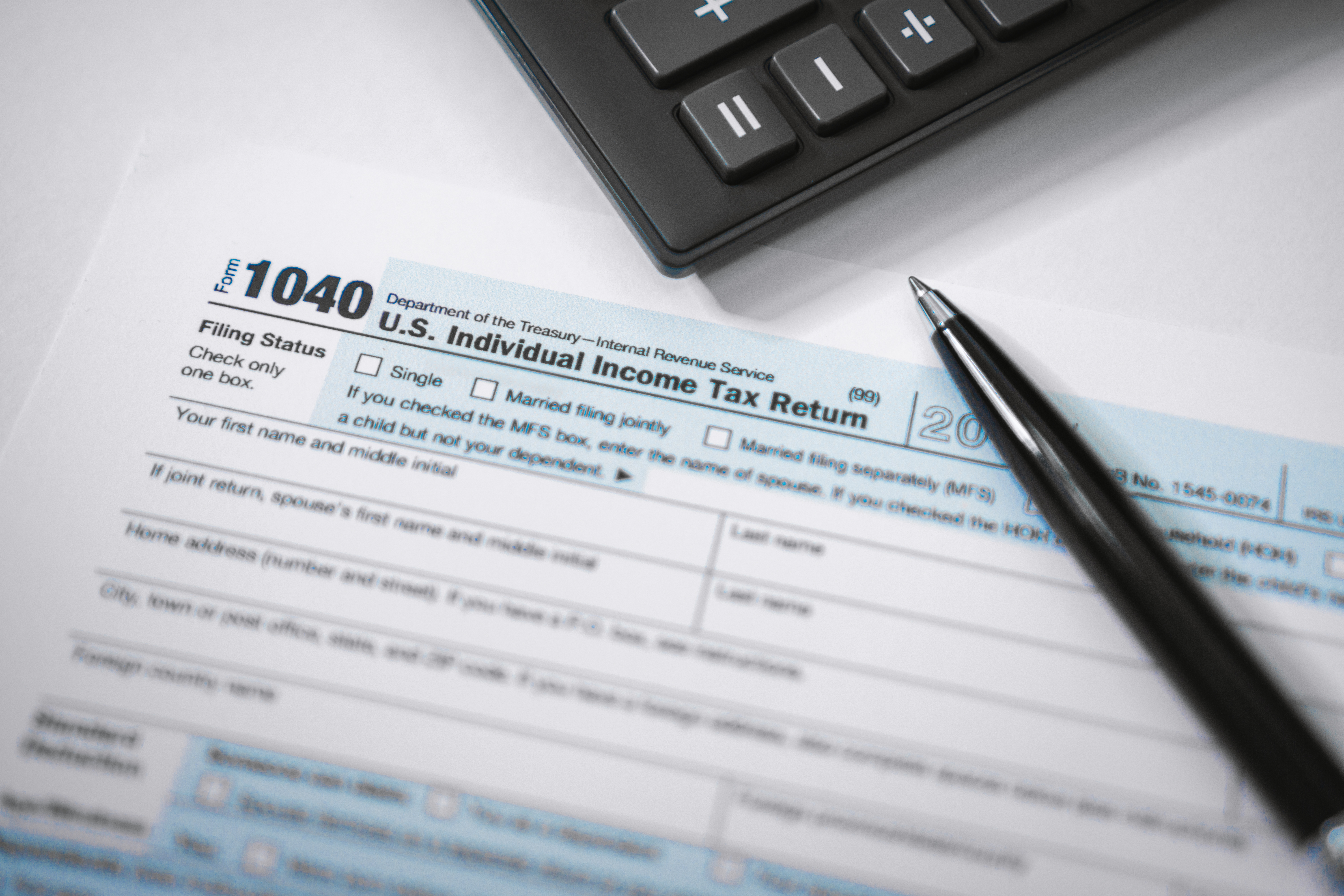11 Money Moves to Make in the Decade Before You Retire
Pre-retirement steps include reviewing what you expect to pay in taxes and how you will cover health care costs once you stop working.


Profit and prosper with the best of Kiplinger's advice on investing, taxes, retirement, personal finance and much more. Delivered daily. Enter your email in the box and click Sign Me Up.
You are now subscribed
Your newsletter sign-up was successful
Want to add more newsletters?

Delivered daily
Kiplinger Today
Profit and prosper with the best of Kiplinger's advice on investing, taxes, retirement, personal finance and much more delivered daily. Smart money moves start here.

Sent five days a week
Kiplinger A Step Ahead
Get practical help to make better financial decisions in your everyday life, from spending to savings on top deals.

Delivered daily
Kiplinger Closing Bell
Get today's biggest financial and investing headlines delivered to your inbox every day the U.S. stock market is open.

Sent twice a week
Kiplinger Adviser Intel
Financial pros across the country share best practices and fresh tactics to preserve and grow your wealth.

Delivered weekly
Kiplinger Tax Tips
Trim your federal and state tax bills with practical tax-planning and tax-cutting strategies.

Sent twice a week
Kiplinger Retirement Tips
Your twice-a-week guide to planning and enjoying a financially secure and richly rewarding retirement

Sent bimonthly.
Kiplinger Adviser Angle
Insights for advisers, wealth managers and other financial professionals.

Sent twice a week
Kiplinger Investing Weekly
Your twice-a-week roundup of promising stocks, funds, companies and industries you should consider, ones you should avoid, and why.

Sent weekly for six weeks
Kiplinger Invest for Retirement
Your step-by-step six-part series on how to invest for retirement, from devising a successful strategy to exactly which investments to choose.
For most people, retirement seems like a faraway dream, something that will happen “one day.”
That faraway dream becomes a lot more real and far more serious the decade before you retire.
“It really is the most important decade for planning,” says Steve Parrish, co-director of the Center for Retirement Income at the American College of Financial Services. “It’s your last chance to get your affairs in order and make sure you have everything set up for a comfortable retirement.”
Americans overall feel pretty good about their future prospects. A 2019 Gallup survey found that 55% of Americans 55 or older are confident they will have enough money for a comfortable retirement, the highest level since 2008, and a post-COVID survey showed their outlook remains mostly intact.
Still, it’s one thing to believe you’ll have a secure retirement and another to make sure it actually happens. These 11 smart money moves to be made the decade before you retire can put you on the right path so that your faraway dream becomes a not-too-distant reality.

Figure Out What Retirement Means to You
“Before you can get into the details, you need an idea of where you’re trying to go. After all, you’ve never retired before,” says Parrish. If you haven’t thought about what you plan on doing after leaving the workforce, you can’t possibly know whether your savings are on track.
To come up with your vision of retirement, focus on the when, where and what. When would you like to retire? Where will you retire, in the same place as you are now or somewhere else? Finally, what do you plan on doing? Will you downsize your lifestyle, keep it the same, or travel more and take on new hobbies?
If you have a spouse or partner, make sure that you have this discussion together. You don’t want one person expecting to stay in, say, Ohio with the rest of the family while the other plans on moving to Florida to golf every day. If you’re single, consider whether other people, like grandkids or a new partner, might enter your life over the next decade, potentially changing your plans.

Know Your Retirement Number
This number is how much you will need to have saved to fund your retirement lifestyle, and by now, you should have a pretty good idea of what it is. If you don’t, there are a few common rules of thumb for estimating that number, such as having 12 times your salary socked away, or enough money saved to generate at least 80% of your preretirement income annually.
Sri Reddy, senior vice president for Retirement and Income Solutions at Principal Financial Group, is uncomfortable with these quick estimates because everyone’s circumstances are different. He prefers an estimated retirement spending budget for categories like housing, food, travel and insurance. He thinks you might be getting a decent test run for retirement spending right now. “If you’re working from home, COVID has given you a baseline of what your retirement expenses would look like,” he says. “There’s no eating out, no new clothes, no commuting costs.”
Reddy notes you might need to allocate a bit more for travel and other activities that the pandemic has squelched temporarily, but for the most part, your current spending could be a close facsimile of your retirement budget.
Reddy also suggests considering whether you might work part-time in retirement, especially if you can monetize something you enjoy. “Could you pick up some shifts at the local library? Drive part-time with Uber so you can stay social? It’s a way to keep busy while supporting your retirement budget.”

Give Your Savings a Checkup
The time to determine whether your savings will hit their target is now, when you can still do something about it if you’re likely to fall short. Ask a financial adviser or retirement planner to run the numbers for you.
Once COVID is out of the way, another option is to attend a retirement planning seminar. Just be wary of those that come with a free meal, like a steak dinner. Some financial firms host the dinners to drum up new business or to sell you expensive, complex financial products you may not need.
You can also keep tabs on whether you’re saving enough, based on the current balance of all your retirement savings accounts and how much you’re putting aside, using free online calculators, such as this one from Charles Schwab.

Save as Much as You Can
This decade is your last chance to top off your retirement savings so take advantage of anything that helps you do that, including higher catch-up contributions for people 50 and over.
In 2021, you can squirrel away up to $7,000 per year into an IRA, instead of $6,000 for those who are younger, and up to $26,000 into a 401(k) instead of $19,500. And don’t forget contributions from an employer.
“If you have a 401(k) match, it would be criminal not to take it,” says Parrish. He recommends saving about 15% of your income during this last decade, with adjustments up or down depending on how close you are to hitting your retirement number.

Stop Spending on the Kids
If you have kids, the decade before you retire is usually when they head off to college and have other major financial needs, like buying their first home. Reddy is definitely in this boat as he will have three children in college by then.
His warning: Don’t put your children’s needs ahead of your own retirement goals. “Parents may rob themselves to pay their child’s college expenses. Big mistake,” he says. “Your kids will have their entire lives to pay off their student loans. You don’t have that many years left to reach a stable position.”
While it may seem like tough love, sharing the costs might help your children make the most out of their education, as Reddy finds people are more accountable when they have skin in the game.

Don't Make Major Changes
Rick Myers, a certified financial planner and president of Integrated Financial Services in Grand Rapids, Mich., believes that one of the keys to a successful retirement is avoiding major changes. Keep the same house, the same car and the same lifestyle, he says. “New cars are expensive.
Moving is expensive. All of these can place a huge stress on a retirement plan.” Keeping the same spouse isn’t a bad idea either, he says, somewhat tongue in cheek, because divorces are costly, too.
Myers notes that although downsizing to another home occasionally makes sense, the numbers often don’t work out as well as people think. “I have seen many clients sell their home to free up money for retirement only to find, after moving costs, little capital [remains] for investment purposes, and they end up regretting their housing decision.” Think carefully before planning any major life change for retirement.

Review Your Investment Portfolio
The closer retirement gets, the more conservative you need to be with your investments. “These days, everyone thinks the stock market only goes up, but historically that’s not true,” says Reddy. He suggests owning enough fixed-income assets so that if the market abruptly drops 20% or 25% your net worth or retirement lifestyle won’t be seriously harmed.
A quick way to estimate how much of your portfolio should be in equities with the rest in safer assets is to subtract your age from 120. So, for example, someone who is 55 would aim to have 65% in equities (120 - 55) and the remaining 35% in fixed income. The rule used to be 100 minus your age, but many financial planners now recommend adjusting the calculation to account for longer life expectancies.
Unfortunately, today’s low interest rates are stifling returns for fixed-income investments like bonds, CDs and Treasuries. Reddy suggests setting up an income annuity for when you retire instead. “The annuity gives you guaranteed income each month to cover your nondiscretionary expenses so you can be more aggressive with the rest of your portfolio,” he says.

Plan Ahead for Taxes
Jeremy Keil, a certified financial planner with Keil Financial Partners in New Berlin, Wis., warns that you shouldn’t assume your tax rate will be lower in retirement. “It could be, but many Americans primarily save through a traditional IRA or a 401(k), where withdrawals are taxable,” Keil says.
While you could try limiting retirement plan withdrawals to keep your tax bracket lower, that might not be possible depending on your spending needs or your age. Once you turn 72, required minimum distributions kick in, and those withdrawals may be larger. “Any extra income could push retirees in a higher tax bracket, and any Social Security dollars that were previously tax-free could become taxable,” says Keil.
One way to minimize your future tax hit is with a Roth IRA or Roth 401(k). These accounts are funded with after-tax dollars today in exchange for tax-free withdrawals in retirement. Roth accounts can help retirees balance taxable income and spending needs without getting pushed into a higher bracket.

Make Sure Health Care Costs are Covered
Fidelity estimates that the average couple will need $295,000 to cover medical expenses in retirement, not including long-term care. Although Medicare will carry most of the load, you’ll still owe premiums, deductibles, copays and potentially other out-of-pocket costs for prescription drugs and medical supplies.
If you have a high-deductible health insurance plan, consider adding a health savings account and contributing as much as you can. Starting at age 55, you can contribute an additional $1,000 for up to $4,600 total in 2021. For family coverage, the limit is $8,200 if you’re 55 or older ($1,000 less if you’re younger). You’ll receive a tax deduction for your contributions today while saving for future health care expenses.
This is also the time to consider how you plan to pay for long-term care. If you decide to buy a long-term care policy or an LTC-hybrid life insurance policy, you have a better chance of qualifying for it at a lower premium in your 50s.
Last, consider what you would do if you are forced to retire before you are eligible for Medicare at age 65. What health care benefits could you access in the interim? Buying a plan on a health insurance exchange, extending your work coverage through retiree benefits or COBRA, or joining a spouse’s workplace plan may all be options.

Aim to be Debt-Free
“Getting to retirement debt-free is one of the biggest gifts you can give yourself,” says Reddy. In that decade before retirement, start by targeting debt with the highest interest rates first, like your credit cards, and gradually work your way down the list until you’re free and clear.
This applies to your mortgage, too, although Reddy sees some pushback. “People say if I can get a mortgage for 2.5%, wouldn’t it be crazy to pay it off?” Not if you don’t need the money. Low-interest-rate debt is still debt, so pay it off if you can, he says.
Plus, Reddy adds, for retirees who typically don’t itemize their deductions and therefore can’t claim mortgage interest, there’s no tax advantage to carrying this debt.

Think About What Could Go Wrong
No matter how much you prepare, something inevitably doesn’t go as planned. “It seems like every 10 years we have something nasty happen economically: COVID, the Great Recession, 9/11,” says Parrish.
He recommends keeping at least six months of living expenses in liquid assets, like a savings account or CD, so you can manage these economic hits. Also, think of worst-case scenarios. For instance, consider how your retirement budget numbers will change if you have to retire several years earlier than planned.
Now is also a good time to consider how declining health might affect you or your spouse. “People assume they’ll go through retirement in perfect health and then one day they just won’t wake up,” says Parrish, “but that’s rarely the case.”
Who will handle your finances or make medical decisions for you if you are unable to do so yourself? What if you need full-time nursing care but qualifying for Medicaid would impoverish your spouse? Your estate plan should explain how you want to handle these tough situations.
Take the time now to update your will, add a durable power of attorney if needed and include advance directives that provide instructions for end-of-life care. You should also consider how you’ll transfer assets to heirs, especially if your strategy involves purchasing life insurance.
As with any financial plan, the sooner you make these money moves, the better your chances are of enjoying that comfortable retirement you’ve always dreamed of.
Profit and prosper with the best of Kiplinger's advice on investing, taxes, retirement, personal finance and much more. Delivered daily. Enter your email in the box and click Sign Me Up.

David is a financial freelance writer based out of Delaware. He specializes in making investing, insurance and retirement planning understandable. He has been published in Kiplinger, Forbes and U.S. News, and also writes for clients like American Express, LendingTree and Prudential. He is currently Treasurer for the Financial Writers Society.
Before becoming a writer, David was an insurance salesman and registered representative for New York Life. During that time, he passed both the Series 6 and CFP exams. David graduated from McGill University with degrees in Economics and Finance where he was also captain of the varsity tennis team.
-
 How Much It Costs to Host a Super Bowl Party in 2026
How Much It Costs to Host a Super Bowl Party in 2026Hosting a Super Bowl party in 2026 could cost you. Here's a breakdown of food, drink and entertainment costs — plus ways to save.
-
 3 Reasons to Use a 5-Year CD As You Approach Retirement
3 Reasons to Use a 5-Year CD As You Approach RetirementA five-year CD can help you reach other milestones as you approach retirement.
-
 Your Adult Kids Are Doing Fine. Is It Time To Spend Some of Their Inheritance?
Your Adult Kids Are Doing Fine. Is It Time To Spend Some of Their Inheritance?If your kids are successful, do they need an inheritance? Ask yourself these four questions before passing down another dollar.
-
 10 Retirement Tax Plan Moves to Make Before December 31
10 Retirement Tax Plan Moves to Make Before December 31Retirement Taxes Proactively reviewing your health coverage, RMDs and IRAs can lower retirement taxes in 2025 and 2026. Here’s how.
-
 The Rubber Duck Rule of Retirement Tax Planning
The Rubber Duck Rule of Retirement Tax PlanningRetirement Taxes How can you identify gaps and hidden assumptions in your tax plan for retirement? The solution may be stranger than you think.
-
 What Does Medicare Not Cover? Eight Things You Should Know
What Does Medicare Not Cover? Eight Things You Should KnowMedicare Part A and Part B leave gaps in your healthcare coverage. But Medicare Advantage has problems, too.
-
 QCD Limit, Rules and How to Lower Your 2026 Taxable Income
QCD Limit, Rules and How to Lower Your 2026 Taxable IncomeTax Breaks A QCD can reduce your tax bill in retirement while meeting charitable giving goals. Here’s how.
-
 457 Plan Contribution Limits for 2026
457 Plan Contribution Limits for 2026Retirement plans There are higher 457 plan contribution limits in 2026. That's good news for state and local government employees.
-
 Estate Planning Checklist: 13 Smart Moves
Estate Planning Checklist: 13 Smart Movesretirement Follow this estate planning checklist for you (and your heirs) to hold on to more of your hard-earned money.
-
 Medicare Basics: 12 Things You Need to Know
Medicare Basics: 12 Things You Need to KnowMedicare There's Medicare Part A, Part B, Part D, Medigap plans, Medicare Advantage plans and so on. We sort out the confusion about signing up for Medicare — and much more.
-
 The Seven Worst Assets to Leave Your Kids or Grandkids
The Seven Worst Assets to Leave Your Kids or Grandkidsinheritance Leaving these assets to your loved ones may be more trouble than it’s worth. Here's how to avoid adding to their grief after you're gone.
